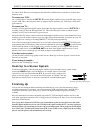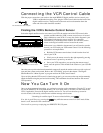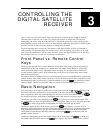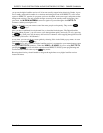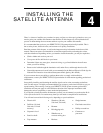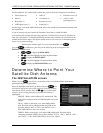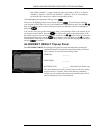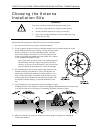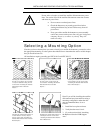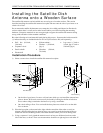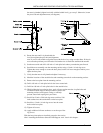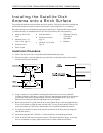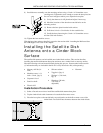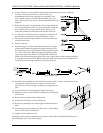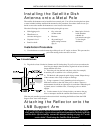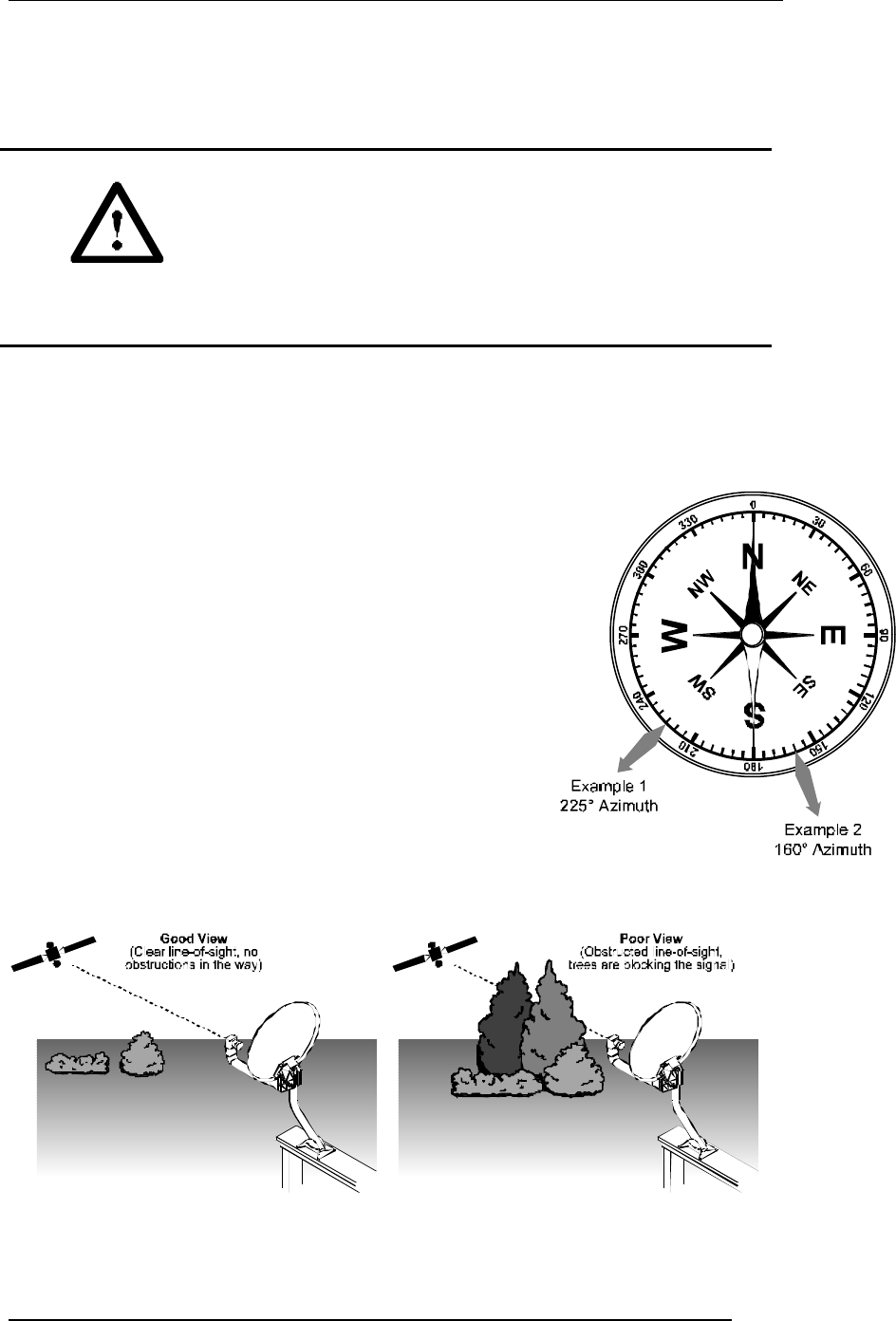
DIRECTV PLUS SYSTEM FROM HUGHES NETWORK SYSTEMS - OWNER’S MANUAL
PAGE 4-4
Choosing the Antenna
Installation Site
WARNING
For your own safety, follow these important safety rules:
• Perform as many functions as possible on the ground.
• Do not install the antenna on a rainy or windy day.
• If you start to drop the antenna or mast assembly, get away
from it and let it fall.
Perform the following steps to select the best site to install the antenna:
1) Go to the location where you plan to install the antenna.
2) Using a compass like the one shown, hold the compass level so that the needle can rotate
freely. When the needle stops rotating, it will be pointing north.
Doing so carefully so as not to disturb the needle, rotate the
body of the compass so that the 0° or N marks printed on the
compass align with the painted end of the needle. The compass
is now aligned with magnetic north.
Note: Large metal structures, such as air conditioning units
and steel beams near the compass may greatly reduce its
accuracy. If you are near such structures, move several feet
away and repeat the measurement to verify the readings.
3) Draw an imaginary line from the center of the compass to the
azimuth value you recorded above. This is the direction for
pointing the satellite dish antenna toward the satellites. Use a
rock or some other object to mark the location where you are
standing; then pick a landmark in the distance that aligns with
the magnetic azimuth bearing, or mark the azimuth in some
way.
4) Verify that there are no obstructions (such as buildings or trees)
blocking the view to the satellite, as shown in the diagram. Remember that trees that are small
or do not have leaves now could grow to ultimately block the clear line of sight.
5) Make sure that the site you have chosen is not where people or equipment could hit the
satellite dish antenna.



